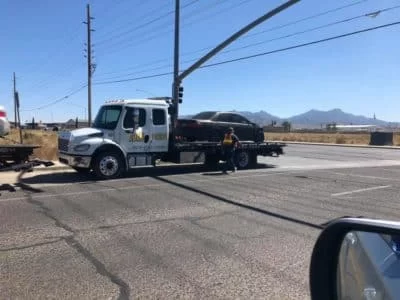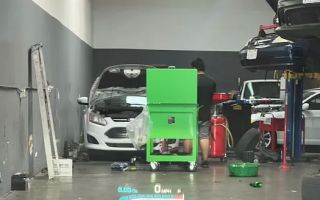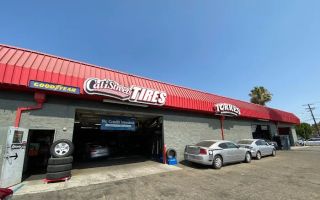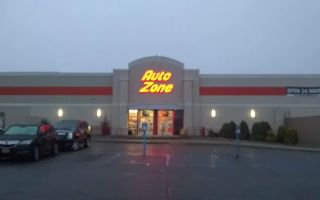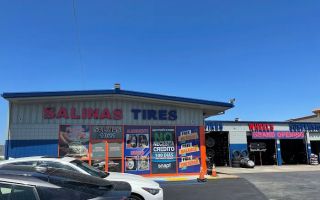Roadside Assistance and Towing for Trailers: Everything You Need to Know
Driving a trailer can be a great way to transport goods, haul a recreational vehicle, or travel long distances with all the comforts of home. But, just like any vehicle, trailers are prone to issues on the road. A flat tire, engine failure, or unexpected breakdown can bring your journey to a halt. That’s when roadside assistance and towing services for trailers become invaluable. In this article, I will take you through the essential aspects of roadside assistance for trailers, including when to call for help, what to expect from towing services, and how to prepare for unexpected issues.
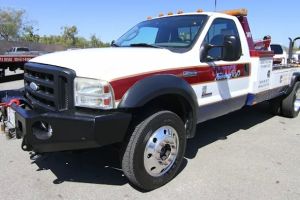
United Towing Service Inc.
26170 Adams Ave, Murrieta, CA 92562, USA
1. Understanding the Importance of Roadside Assistance for Trailers
While most drivers are familiar with roadside assistance for cars, many aren’t sure about how trailer roadside assistance works. The difference is that trailers, especially larger ones, require special attention due to their size and weight. I learned this the hard way when I once found myself on a long trip with my RV trailer and realized that my backup tire was flat. That experience really drove home the importance of knowing how to handle such situations and understanding what services are available. When your trailer experiences issues on the road, here’s why roadside assistance is so crucial:
- Trailer-specific Equipment: Towing a trailer is different from towing a standard vehicle. It often requires additional equipment such as heavy-duty tow trucks or specialized towing straps.
- Expert Handling: Trailers, particularly those that carry a heavy load or have unique designs, can be tricky to tow. Roadside assistance ensures that experienced professionals handle the situation safely and efficiently.
- Comprehensive Services: From flat tire repair to engine troubleshooting, having access to a wide range of services ensures that your trailer is road-ready without the need to haul it to a mechanic for every minor issue.
2. Common Reasons You Might Need Towing or Roadside Assistance for a Trailer
Knowing what can go wrong with your trailer is key to understanding when you might need towing or roadside assistance. Here are some of the most common scenarios I’ve experienced—and many other trailer owners have too—that necessitate roadside help:
- Flat Tires: This is one of the most frequent issues with trailers. Whether you’re driving on rough terrain, encountering a sharp object, or just dealing with wear and tear, flat tires are a reality on the road.
- Engine or Mechanical Failures: Just like with any vehicle, trailers can suffer from mechanical issues, including engine breakdowns if they are equipped with an engine, or problems with the trailer’s braking or lighting system.
- Accidents: Sometimes, you’re just unfortunate enough to be involved in a minor accident that leaves your trailer inoperable. Whether it’s a fender bender or an incident that damages your trailer’s axle, towing assistance is a lifesaver in these situations.
- Overheating: Overheating can be a problem with some types of trailers, especially if they’re carrying a heavy load. If the engine or the trailer’s systems get too hot, you’ll need immediate assistance to prevent further damage.
3. What to Expect from Roadside Assistance and Towing Services
When I had an issue with my trailer’s tire during a long road trip, I called roadside assistance and was pleasantly surprised at the level of service I received. Here’s what you can typically expect from roadside assistance and towing services for trailers:
- Immediate Response: A reliable towing service will dispatch a professional to your location as quickly as possible. The average wait time varies depending on your location and the availability of tow trucks, but generally, you can expect help within 30-60 minutes.
- Comprehensive Diagnostics: The first thing the roadside assistance professional will do is assess the situation. This includes inspecting your trailer for any visible damage and diagnosing issues such as a flat tire or a malfunctioning braking system.
- Towing to the Nearest Safe Location: If repairs cannot be made on-site, the towing professional will transport your trailer to a nearby mechanic or service center. If you're in a remote area, they will aim to get you to a location that can provide the help you need.
- Minor Repairs On-Site: In some cases, if the issue is simple, such as a flat tire or dead battery, the roadside assistance team will handle the repair on-site, so you can continue your journey without further delay.
4. How to Prepare for Unexpected Roadside Assistance Needs
While I hope you never need to rely on roadside assistance, the truth is that breakdowns can happen at any time. Here are a few tips to ensure you’re always prepared for the unexpected:
- Regular Trailer Maintenance: Regularly inspecting and maintaining your trailer is crucial. Make sure the tires are properly inflated, the brakes are functional, and the lights are working. This simple habit can prevent many issues that would otherwise require roadside help.
- Have the Right Tools: If possible, always keep a basic toolkit in your trailer, including a spare tire, jack, and other essential tools. I always carry a tire patch kit and a tire pressure gauge, just in case something happens while I’m on the road.
- Choose the Right Towing Service: Not all towing companies are equipped to handle trailers. Before you head out, make sure to research local towing companies that specialize in trailer towing services. Having the contact details of a trusted service on hand can save you time and frustration.
- Know Your Insurance Coverage: Some roadside assistance packages are included with your vehicle insurance, while others are optional. Ensure you’re clear on your coverage before embarking on a long journey.
5. When to Call Roadside Assistance vs. Attempting a DIY Repair
During my experience with my trailer’s flat tire, I debated whether I should try fixing it myself. In many cases, it’s tempting to handle things on your own, but knowing when to call for professional help is crucial. Here’s when I learned it’s best to call for help:
- Complex Issues: If you’re dealing with something more complicated than a flat tire, such as brake issues or engine failure, calling roadside assistance is always the safer choice. Attempting a DIY fix in such situations can be risky.
- Unsafe Locations: If you’re stuck on a busy highway, it's always best to wait for roadside assistance. Trying to repair your trailer on your own in such conditions can be dangerous.
- Too Far from Help: If you’re in a remote area and unable to find the necessary resources for a DIY repair, towing services can help you get to safety and prevent further damage.
While it can be frustrating to experience breakdowns on the road, understanding the value of reliable roadside assistance and towing services for trailers is key. Whether it’s a flat tire or a more serious mechanical failure, help is just a call away. Remember, the best way to handle a trailer emergency is to be prepared, stay calm, and know when it’s time to call the professionals.

